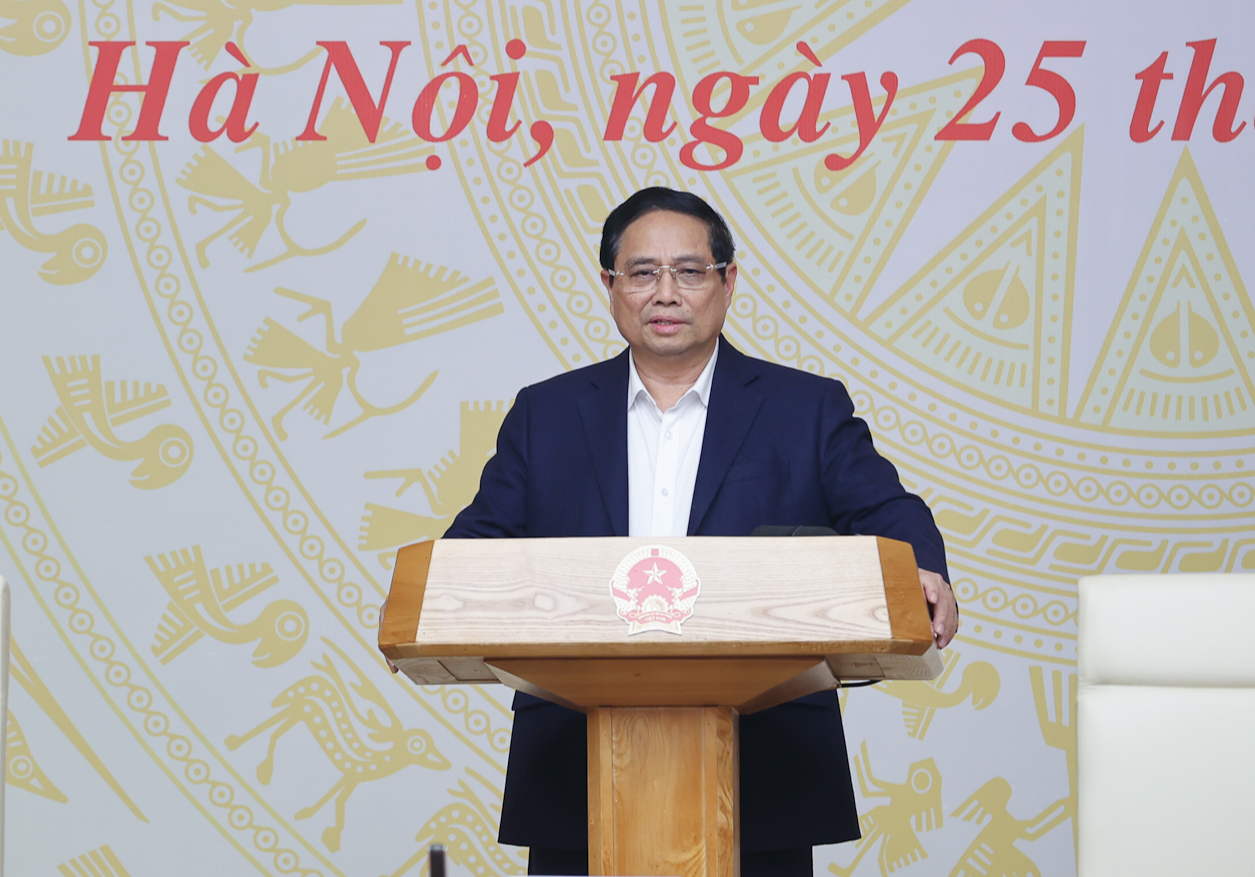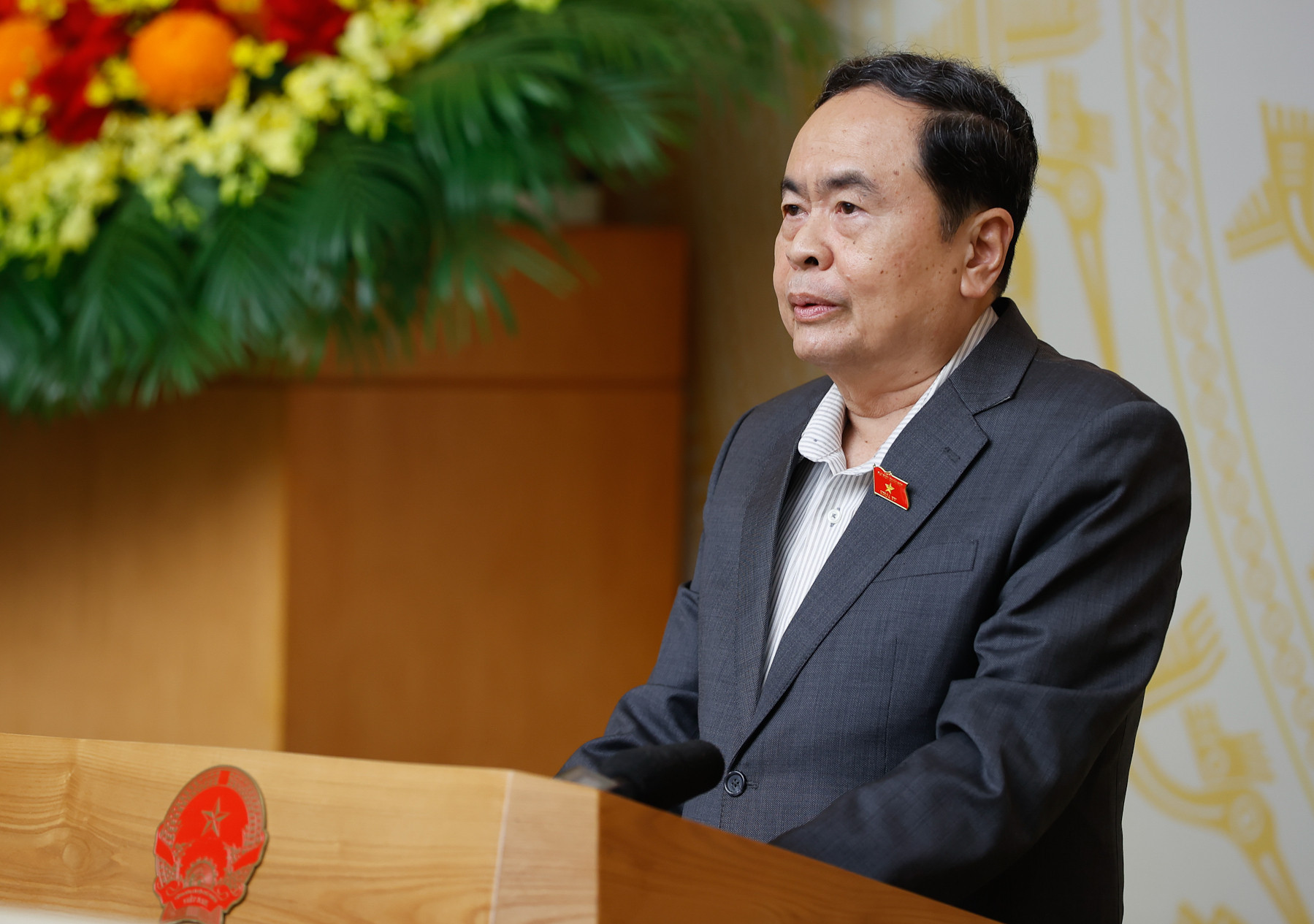
Chairman of the National Assembly Tran Thanh Man revealed that an estimated 4,922 documents, including laws, resolutions, decrees, and directives, will be impacted by the ongoing reorganization of government agencies and institutions.
Addressing institutional bottlenecks
On December 25, Prime Minister Pham Minh Chinh and National Assembly Chairman Tran Thanh Man co-chaired a conference to implement laws and resolutions passed during the 8th session of the 15th National Assembly.
Speaking at the event, Prime Minister Pham Minh Chinh underscored the importance of institutional reform as a cornerstone of Vietnam's strategic breakthroughs. He described institutional development as "the breakthrough of breakthroughs" and a critical driver of progress.
The 8th session passed a significant number of laws and resolutions covering essential areas such as investment, finance, taxation, social welfare, and national security. These legal reforms aim to address existing bottlenecks, remove obstacles, and unlock resources to propel socio-economic development.
Chairman Tran Thanh Man emphasized the monumental challenge of implementing these legal changes amidst efforts to streamline organizational structures. Currently, nearly 700 provisions in 18 laws and 10 resolutions require detailed guidelines to be issued by various levels of government.
Preparing for urgent legislative tasks

A preliminary review by the Ministry of Justice indicates that 4,922 legal documents will need revision or adjustment due to organizational restructuring. This includes 167 laws, nine National Assembly resolutions, 10 ordinances, two resolutions by the Standing Committee of the National Assembly, 829 decrees, 271 Prime Ministerial decisions, one directive, and 3,642 ministerial-level documents.
The Standing Committee of the National Assembly has requested a swift review to identify the necessary amendments and propose specific solutions. Options include consolidating multiple laws into a single omnibus bill or issuing resolutions to address specific issues.
Chairman Tran Thanh Man stressed the need for meticulous preparation to ensure that decisions can be finalized during the extraordinary session scheduled for late February 2025. He acknowledged the inevitable disruptions caused by restructuring but urged newly established agencies to inherit ongoing work seamlessly.
He also called for heightened efficiency in legislative drafting to ensure that all related legal documents take effect concurrently with the laws and resolutions they support.
Ensuring quality and consistency in legislative processes
As part of the 2025 legislative agenda, the National Assembly will consider and approve 11 laws and two resolutions while providing initial feedback on 15 draft laws during its 9th session. Several additional proposals from the government are expected to be added to the agenda.
Chairman Tran Thanh Man highlighted the importance of adhering to principles of legislative innovation, focusing on concise, clear laws that maintain long-term stability. Delegation of responsibilities to the government and local authorities should be emphasized to enable flexibility in implementation while aligning with practical needs.
He also emphasized the need for synchronization and consistency in the legal system, prioritizing quality over quantity in drafting and approving laws.
Strengthening cooperation for effective implementation
The government has directed all agencies to urgently review legal documents affected by organizational restructuring. This includes provisions related to renaming or redefining responsibilities of ministries and agencies.
With a substantial volume of documents requiring revision within a short timeframe, collaboration among ministries, agencies, and local governments is crucial. Agencies are tasked with ensuring timely, high-quality drafting and feedback to meet the legislative deadlines and maintain the effectiveness of the legal framework.
Thu Hang